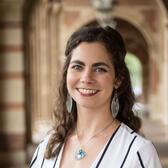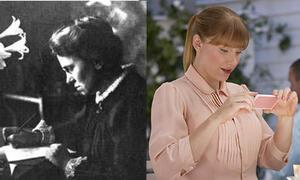A Picture and A Thousand Words
I am a millennial. Part of that selfie-obsessed generation that grew up with the benefits of camera phones and the Internet. We allow our camera to eat before our mouths. We go to beautiful landmarks for the sake of showing people that we went there, rather than actually learning something from them. The social media platforms targeted toward our demographic all center around photos--Instagram, Snapchat, Facebook, Pinterest. We move through life by capturing moment-to-moment visuals, rather than letting all our senses uninhibitedly experience it.
Don’t get me wrong, I understand the criticism—and have bitterly made similar observations about our over-the-top photo culture myself. I have refused to get an Instagram account. I want to destroy my friend’s food every time he won’t let me eat my food until he gets the perfect picture. And I have remained stubbornly judgmental of people who manipulate photography to project an enhanced and fake depiction of themselves and their lives.
But my thoughts about my photocentric generation have changed recently, while I’ve been an intern at the Jewish Women’s Archive. I’ve learned many things in a short amount of time, but one lesson I never expected was the fundamental value of photographs or other forms of portraiture. Sure, I have always pined for photos of ancient civilizations and the like—as a History major in college it would have been weird not to. And it’s not like I never understood the fundamental value of being able to record a moment easily. I just never really realized what it would mean not to have ready access to photography until now.The project I have been working on at JWA entails delving into the vast landscape of the Internet and finding photographs or images of women in our Encyclopedia who do not yet have identifying images attached to their entries. As an avid researcher and historian, I have enjoyed the often challenging task of finding archives and institutions that may possibly have a photograph of these incredible women.
But sadly, the research doesn’t always prove fruitful. There are no identifying images for many of these women. Many women can only be found through their husbands’ or fathers’ archives, and even then the possibility of finding existing photos is not guaranteed. Countless lived during difficult times of oppression and hardship in Europe, and a permanent image of them was either destroyed or never existed. I mourn a little for these women who accomplished incredible things, yet do not “exist” visually.
I know it may seem silly: of course there isn’t a portrait of every person who has ever existed. But the thing is, I grew up in a culture where a person’s existence is determined by their online presence. Anyone can be found and seen and identified on the Internet if you look hard enough. And yeah, it’s creepy, but I worry if it also puts a false value on a person’s life. I never realized how much easier it is to believe someone from history truly existed based on whether or not someone copied their likeness down. A photograph of someone captures them in a split moment of their life; it doesn’t usually say any more about them than their life’s work does. And thinking otherwise is absurd, and yet I can’t help but place some value in it.
As I said, I have more or less thought that contemporary photo culture was a bit over-the-top. But after my work at JWA, I have a newfound appreciation for people’s obsession with taking photos of everything. I’m not fully letting go of my criticism of its ability to deceive—but rather than thinking of photography as cheapened, I am now choosing to appreciate its democratic value.
I still feel conflicted about how much additional value a photo can lend an individual, but I also know that it is no longer possible for our personal and cultural heroes to go unnoticed and unseen in the pages of history. Future generations will have a wealth of knowledge and resources to choose from, and women will no longer be hidden by men, patriarchal societies, or the fires of time. We just have to make sure that photos are not the only records of a life we are leaving behind. Keep writing and crafting and inventing. Keep researching and learning and teaching. Keep giving and healing and fighting injustice. A photo is only worth a thousand words if there is a story to be told along with it.








My mother was obsessed with taking photos. I thnk women manifest through photos. I would not know who my family was, without my mother's diligence of photographing and collecting family photos.